Health
Simple Habits That Naturally Strengthen Your Immune System

Let’s be honest — no one wants to feel run-down all the time. You know that tired, sluggish feeling like your body is fighting something off. or already lost the battle.
But the truth is, your immune system isn’t just some silent defender in the background. It’s your body’s frontline warrior — and how you treat it matters.
The good news? You don’t need expensive pills or complicated routines to take better care of your body.
Most of the time, it’s not about adding more
it’s about getting back to the basics.
If you’ve been feeling worn out or just want to stay ahead of the curve, here are seven real-life habits that quietly, but powerfully, help your immune system stay strong
Prioritize Quality Sleep
We live in a world that glorifies hustle.
And Sleep? It’s often the first thing we sacrifice. But the irony is — sleep is one of the most powerful tools we have for healing.
During deep sleep, your body repairs tissues, regenerates cells, and strengthens immune memory.
And yes, It’s not just about how long you sleep, the quality of that sleep matters.
If you’re surviving on 4–5 hours a night, your immune system is basically running on fumes.
Quick tips to actually sleep better:
Start by giving yourself a moment to slow down at night. Maybe flip through a book, scribble in a notebook, or just sit still for a bit. No screens. No noise. Just stillness.
Keep your room a little chilly, quiet, and dim, Just a space your body feels safe enough to rest in.
And try to treat sleep like fuel, not a reward. Not just for weekends. Every night matters.
7–9 hours every night is where the magic really happens.
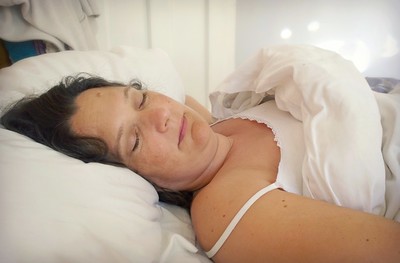
Move Your Body
You don’t have to run marathons or lift heavy weights. Just move. Regular, moderate movement increases blood flow, lowers inflammation, and helps your immune cells travel more efficiently.
It also boosts your mood — and a positive mental state directly impacts how your body fights illness.
Walk. Stretch. Dance in your room. Whatever gets your body out of stillness.
Simple ways to move more:
Take a 10-minute walk after meals
Do a few jumping jacks between tasks
Use stairs instead of the elevator when you can
Always remember that movement helps your body function at its best.

Eat More Whole, Unprocessed Foods
Stick to food that looks like it came from nature, not a factory. Not things in shiny boxes with names you can’t pronounce.
Your body works better when you feed it real things — fruits, vegetables, grains, nuts. That’s what keeps your immune system strong.
Too much junk? It slows you down. Makes your body fight things it shouldn’t have to.
It’s not about being perfect. Just eat more of what’s grown — not made.

Stay Hydrated
Drink More Water
It sounds basic, but most people walk around mildly dehydrated — and don’t even know it.
You’re not trying to flood your system, but your body does need enough water to keep things running smoothly. Especially your immune system.
Think of it this way: if your body’s trying to flush out toxins, carry nutrients, and keep your skin, digestion, and focus in check — water’s the vehicle.
Here’s What Actually Helps:
Keep a water bottle in plain sight. If you can see it, you’ll drink it.
Make water the first thing you consume in the morning. Before the phone. Before the coffee.
Add a slice of lemon or cucumber if plain water isn’t your thing.
Manage Your Stress
Chronic stress is as well physical as it is emotional. It triggers the release of cortisol, a hormone that, when elevated for too long, weakens your immune defenses.
You can’t remove all stress. But you can choose how you respond to it.
Ideas to manage stress without overthinking it:
Breathe deeply for 60 seconds when you feel overwhelmed
Journal your thoughts — even one paragraph a day helps
Say “no” more often to things that drain you
Mental peace creates physical strength. Protect your peace.
Get That Vitamin D
Your body actually makes vitamin D when you spend time in the sun
But here’s the thing: a lot of us don’t get enough. Maybe we’re indoors all day, working late, or just not getting much sunlight where we live. And low vitamin D can mess with your immune system.
You don’t need to sunbathe all afternoon — even 10–15 minutes outside a few times a week can help.
A little sunlight. Big difference.
Best practices:
Step outside for 10–15
minutes in the morning or midday
Let sunlight hit your arms, face, or legs
Clean Hands
Again, it’s the simple things that actually keeps us well.
Washing your hands properly. Cleaning your phone. You’d be surprised how much staying healthy comes down to little things. Like not sharing your water bottle. Or actually washing your hands properly.
It might not feel like a big deal, but that’s the stuff that quietly protects you day after day.
Your immune system already has enough to deal with — no need to add more from what you can easily avoid.
Wash your hands with soap — for real, not the 3-second splash.
Wipe down things you touch often (your phone, your keyboard).
Don’t share makeup, utensils, or drinks — no matter how close you are.
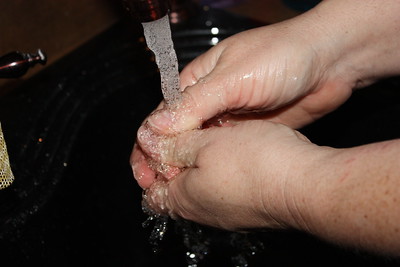
Conclusion
If you’re expecting a miracle fix, this isn’t it.
But if you’re ready to take small, consistent steps that respect your body and give it what it needs, this is the roadmap.
Start with one habit. Build from there. Don’t let perfectionism stop you. Progress is powerful. Consistency is key.
Your immune system isn’t a machine. It’s alive, responsive, and influenced by everything you do or don’t do.
So drink the water. Take the walk. Turn off your phone at night. Eat the veggies. Exhale.
you’re building a body that feels good to live in.
Read Next Post: Salmon DNA Facials: The New Secret to Glass Skin
Health
The Most Powerful Antioxidants That Slow Aging

Time never stops, but the way it shows up in our skin, energy, and overall health isn’t only about age, it’s also about how we take care of ourselves. Antioxidants play a big part. They protect our cells from daily stress, pollution, and sunlight. Here are a few key ones that can help slow down the signs of aging.
Vitamin C
This is your skin’s best friend. Vitamin C is like the encouraging coach that tells your skin to produce more collagen, keeping it firm and bouncy.
Vitamin C helps your skin stay firm by supporting collagen. It also guards against sun damage and keeps your skin from looking dull. You can get it from citrus fruits, berries, and even bell peppers.

Vitamin E

Vitamin E works with vitamin C to keep your skin soft and healthy. It helps your cells stay strong. You can find it in nuts, seeds, and leafy green vegetables.
Resveratrol
Resveratrol is a plant compound in red grapes and berries. It supports heart health, may help you live longer, and calms inflammation that makes aging faster.
CoQ10
Your body produces CoQ10 naturally, but less as you get older. It helps your cells turn food into energy while fighting off damage. Fatty fish and organ meats are natural sources.
Carotenoids
Carotenoids are what give carrots, sweet potatoes, and spinach their rich colors.
Polyphenols

Found in tea, coffee, and dark chocolate, polyphenols support circulation, sharpen your mind, and reduce stress on the body.
Glutathione
It helps flush out toxins from your body and keeps your immune system strong. You can give it a boost by adding simple foods like garlic, onions, and broccoli to your meals.”
Simple Ways to Get More Antioxidants
Eat more colorful fruits and veggies.
Add nuts and olive oil to your meals.
Choose green tea instead of sugary drinks.
Read Next Post: Perfume 101: 4 Scents Guaranteed to Get Compliments Before October
Health
Fibermaxxing—How Experts Say It Supports Digestive Health Wellness

Fibers come from real plant food such as vegetables, whole grains, fruits, beans, seeds, and nuts. It can also be obtained from its supplements. So Fibermaxxing, simply put, means making fiber a consistent part of your daily meals to support gut and overall health.

Health fiber food -Pinterest @lizaluxe’s
Why is it beneficial
Here are the main reasons experts say you should eat fiber.
Feeds good bacteria: By consuming a lot of fibre and different kinds of it, you’re giving the healthy gut bacteria lots of food to grow on.
May Help With Weight Loss: Adding it to meals and snacks has many advantages, one of which is that it makes you feel satisfied in between meals and might lessen overeating tendencies.
Helps with constipation: High quantity softens and increases the size and weight of faeces. It aid in the solidification of loose, watery stools. This is because fibre absorbs water and increases stool volume.
Lowers Cholesterol and Controls Blood Sugar: The soluble found in beans, oats, flaxseed, and oat bran may help the body avoid absorbing some of the cholesterol in other foods. As a result, bad cholesterol may decrease. Also assist in regulating blood sugar level and also help diabetic patients lower their blood sugar. Promoting a healthy heart and preventing diabetes.

Ways to add fiber to your meal – Pinterest @ Max B
Easy Ways To Include Fiber In Your Meal
Remember, too much of anything is not good. Add fiber slowly so your body can adjust. If you increase it too quickly, it can overwhelm digestion and cause gas, bloating, diarrhea, or cramping. Gradual changes help prevent these issues.
- Try to make sure every meal contains either fruits, vegetables, or both. For example, add veggies to lunch and dinner, and fruit bowls for breakfast. Also when you want to snack, let fruit be your focus, nuts, and seeds. You can include them in other dishes like stir-fries, salads, and yoghurt.
- Switch to whole grains. Let at least half of your daily grain intake be whole grains. Select breads that contain a minimum of 2 grams of fibre per serving. The first ingredient listed on the label should be whole wheat, whole-wheat flour, or another whole grain. Additionally, try other whole grains like quinoa, brown rice, wild rice, buckwheat, and whole-wheat pasta.
- Legumes such as beans, peas, and lentils are excellent fiber sources. Add them to soups or salad. Prioritize whole-food sources of fiber over supplements whenever possible.
- Make sure you consume whole food fiber rather than supplement fiber.
Simple way to add fiber to your diet today:
- Whole-grains such as barley, bulgur, brown rice, and whole-wheat bread or pasta.
- Fruits.
- Vegetables.
- Beans, peas, and other legumes.
- Nuts and seeds.
For Women it is medically recommended that 21 grams are for those older than age 50 and 25 grams for women age 50 or younger.

Healthy plate of fiber -Pinterest @Emy
Conclusion
For a happier gut, better digestion, steady blood sugar, and lower cholesterol, eat more fiber the smart way daily and mostly from plants.
Note: if you have existing health problems like IBS or small- bowel issues consult with a gastroenterologist or dietician before fibermaxxing.
also read: Healthy Eating on a Budget – Affordable Nutrition Options in the UAE
Health
4 Reasons Why Shorter Workouts Might Give Results
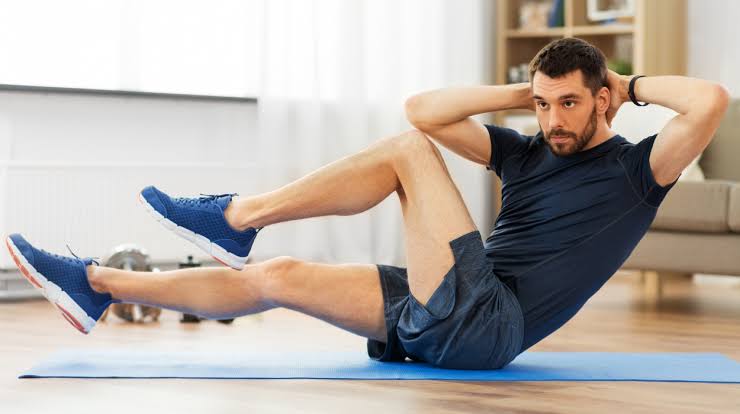
I used to believe a solid workout meant spending hours at the gym. Where it is long enough to sweat buckets, and you can feel every muscle ache, pushing yourself to the limit. Think about it, life gets more busy, you don’t have all the hours to spend in a gym house. These days, you can get a solid session done in 20 minutes, and honestly, it works. You can’t drift off, scroll on your phone, or take long breaks. You just go, move from one exercise to the next. By the end of the session, there’s sweat, a racing heartbeat, and a strong sense of accomplishments.
Focused Movement
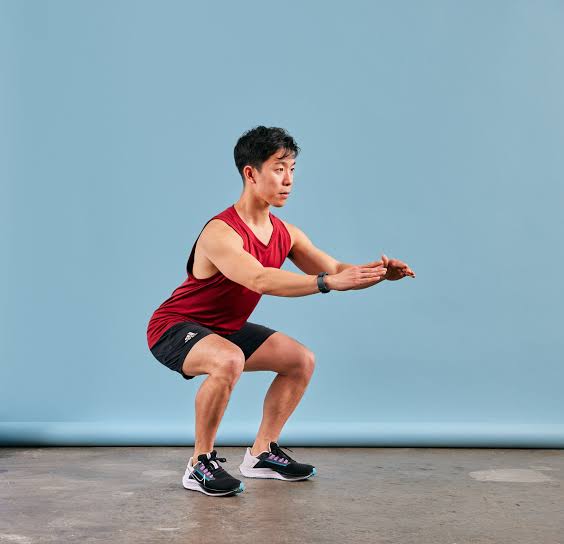
With limited time, every exercise becomes focused. You don’t have hours to waste, so you pay attention to form, effort, and breath. That single-minded approach strengthens both body and mind, it’s about doing things properly rather than doing them for longer.
Quick Cardio Gains
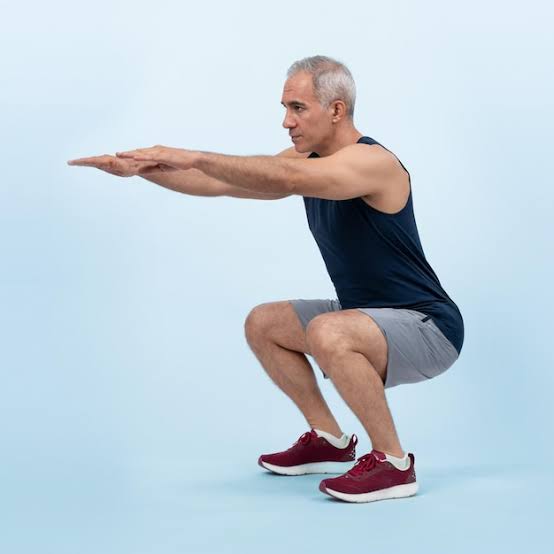
Imagine the sun just starting to peek over the city skyline. The streets are quiet, but your legs are moving fast, up a flight of stairs, along the empty promenade, your breath coming in sharp bursts, so twenty minutes feels short, almost too short, but every step, every push, every movement hits a bit harder than you expect. By the end, your heart is racing, your muscles are awake, and somehow, it’s enough. More than enough. Short workouts are all about making every second count. They take what might feel like a small effort and turn it into something that builds strength, stamina, and momentum you can carry through the day.
Strength Without Burning Out

Shorter workouts push the body just enough without draining it completely. There are Moves that work multiple muscles at once—like squats, rows, or push-ups, they make every minute count. Because energy isn’t wasted, it’s easier to stay consistent and keep training day after day
You Stick With It
Perhaps the biggest advantage is consistency. Fifteen-minutes is realistic. It’s something that fits easily into a busy day—before work, between meetings, or once the kids are asleep. Once it becomes routine, even these short sessions start to add up, creating real, noticeable results over time.
Conclusion
You don’t need to spend hours in the gym to be fit, that small tasks and work out can really make a difference. Remember it’s more of intensity and less of duration.
Read Next Post: Lil Nas X Hospitalized After Los Angeles Arrest
-

 Top Xclusiv4 weeks ago
Top Xclusiv4 weeks agoAriana Grande Brings Vintage Hollywood to the Wicked: For Good Paris Premiere
-

 Skin Care5 months ago
Skin Care5 months agoSalmon DNA Facials: The New Secret to Glass Skin
-

 Movies5 months ago
Movies5 months agoDownton Abbey: The grand Finale Trailer Review
-

 Movies4 months ago
Movies4 months agoAfter the Hunt Trailer Review
-

 TV Shows4 months ago
TV Shows4 months agoForget Brunch Plans These Camping Spots Will Reset Your Soul
-

 Nails4 months ago
Nails4 months agoK-Beauty Rosewater Nails Are Summer Trend Everyone’s Asking For
-

 Deco4 months ago
Deco4 months agoInterior Art Design Ideas That Will Transform Your Home
-

 Entertainment2 months ago
Entertainment2 months agoEddie Murphy Peels Back the Curtain in New Documentary Trailer “Being Eddie”











